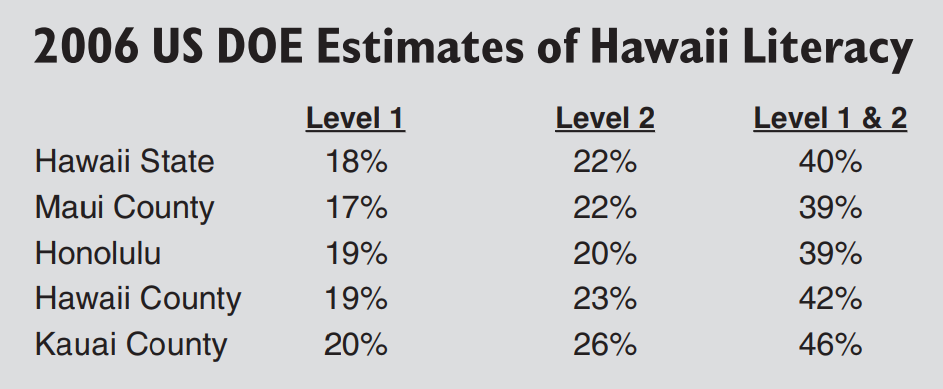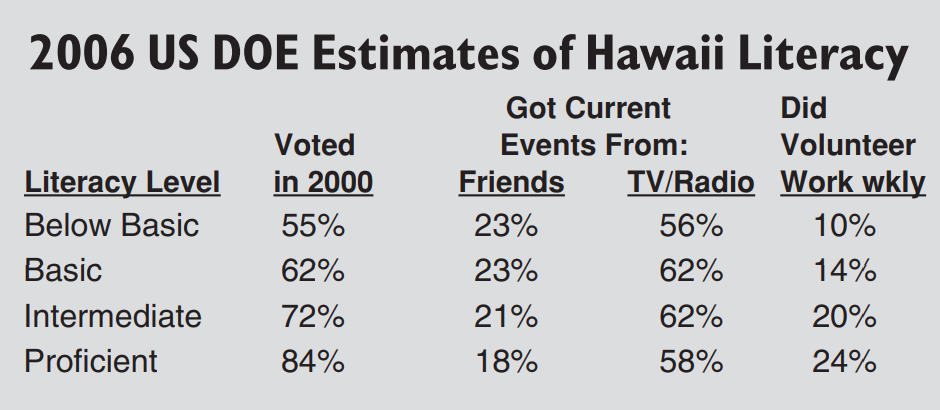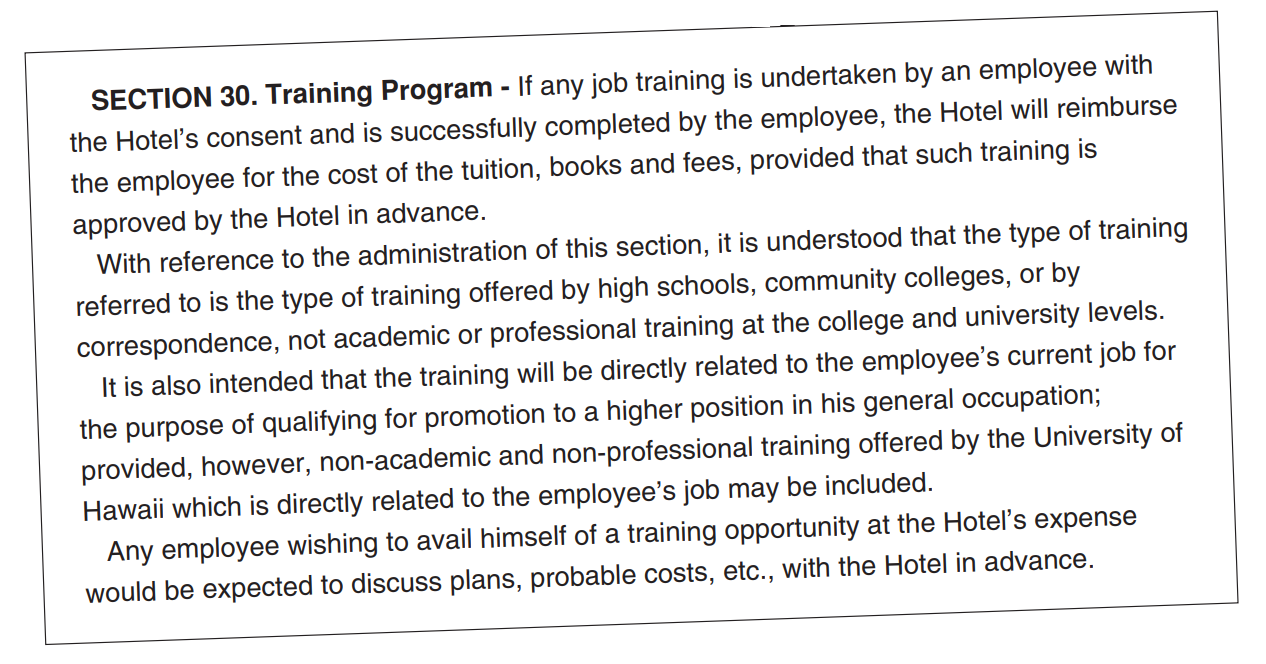The first comprehensive study of adult literacy in the US was done in 1992-1993, following the passage of the National Literacy Act of 1991. The Clinton Administration published the detailed results of the study in August 2003, a few months after the study was completed. The results were startling—26% of American adults had no more than basic literacy skills and 22% had little or no literacy ability in the English language.
A follow-up study was done in 2003 to see if adult literacy improved after 10 years. That study was completed in early 2004, but it was an election year and somehow it took the Bush Administration almost 2 years until December 2005 to release a short report on the results. It took another year and four months before the final report was published in April 2007, a few months after the 2006 midterm elections.
One reason for the delay was a change in the standards for literacy. It seemed the 1992 survey was too tough on people by requiring an 80 percent passing grade for each level. The passing grade was reduced to 67 percent and the 1992 data was revised accordingly..
Even with the lower standard, the results were alarming—28% of American adults had no more than basic literacy skills and 16% had little or no literacy ability in the English language. It was only slightly better then the revised 1992 figures of 27% at the basic level and 18% below basic. What was more disturbing was a drop in the top level—in 1992 it was a little over 14%, but in 2003 it was 13%. [See http://nces.ed.gov/ Pubs2007/2007480.pdf]
Voting and Literacy
Voting rates and volunteerism consistently increased with literacy skills. All levels of literacy got a lot of information about current events and government from family, friends, and co-workers or from TV or radio. People at the higher levels also got information from the internet and reading, while very few of the lower levels used these methods to get information on current events. ◆


Union contract can help
Many ILWU contracts provide for the employer to pay for the cost of the tuition, books, and fees for job related training. You will need to get advance approval from your employer. See below for an example of the training benefit in a hotel contract.

Even if your union contract does not have a training benefit, your employer may still agree to pay for the training.
You should speak with your union officers before approaching management. They may be able to help with your request for training.
Many of the Community School for Adults locations offer classes on Hawaiian culture or Japanese language. It would make sense for a hotel to support this kind of training for any of its workers who may have contact with guests.
This is an example of the training language in an ILWU hotel contract:

